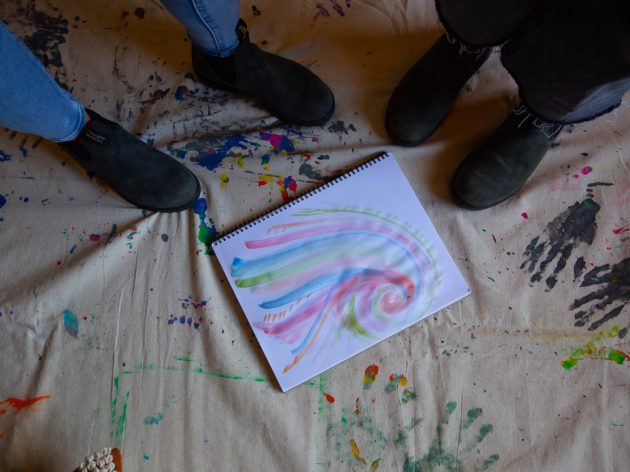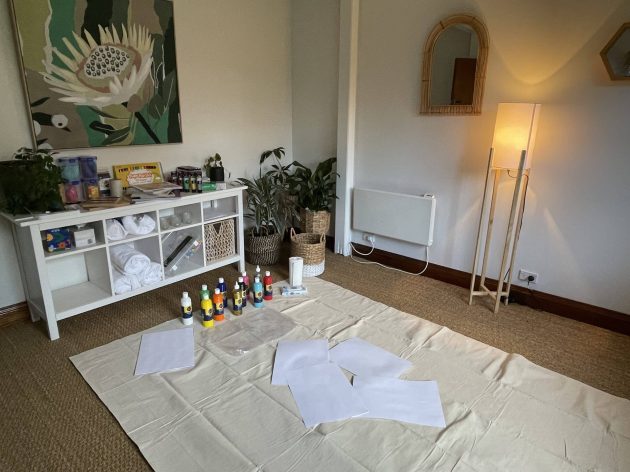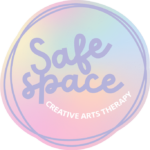Insights & Benefits
Art Therapy
What is Art Therapy?
Art Therapy is a transformative practice that blends creative expression with emotional healing.
Art Therapy enables individuals to use creative expression as a tool for self-discovery when traditional verbal communication falls short.
With the support of a trained art therapist, people engage in art-making to unearth and express complex emotions. No artistic skill is required. This process can be particularly beneficial for processing emotional conflicts, trauma, and fostering personal growth, offering a unique and profound way to articulate inner experiences.Benefits of Art Therapy
Unleashing Emotion, Creativity and Healing
Emotional Release
Art Therapy allows for the expression of deep emotions, providing a healthy outlet for releasing feelings that might be difficult to verbalise.
Stress Reduction
Engaging in artistic activities can be calming and therapeutic, helping to reduce anxiety. It provides a safe way to process traumatic experiences.
Improved Self-Awareness
Creating art can help individuals understand themselves better, including their emotions, thoughts, and experiences.
Communication
Art Therapy offers an alternative way to express thoughts and feelings. It can also help with conflict resolution, both internal and interpersonal.
Mindful Presence
Through exploring with the arts people can learn to be more present in the here and now. This can be useful to integrate into everyday life.
Mind-Body Connection
Art Therapy can alleviate the physical symptoms associated with stress. Individuals learn to recognise the connection between their emotional and physical states.
Benefits of Art Therapy
Emotional Release
Art Therapy allows for the expression of deep emotions, providing a healthy outlet for releasing feelings that might be difficult to verbalise.
Improved Self-Awareness
Creating art can help individuals understand themselves better, including their emotions, thoughts, and experiences.
Mindful Presence
Through exploring with the arts people can learn to be more present in the here and now. This can be useful to integrate into everyday life.
Stress Reduction
Engaging in artistic activities can be calming and therapeutic, helping to reduce anxiety. It provides a safe way to process traumatic experiences.
Communication
Art Therapy offers an alternative way to express thoughts and feelings. It can also help with conflict resolution, both internal and interpersonal.
Mind-Body Connection
Art Therapy can alleviate the physical symptoms associated with stress. Individuals learn to recognise the connection between their emotional and physical states.
CASE STUDY
A client approached me during a time when her self-worth had plummeted and was adversely affecting her mood, relationships, and overall happiness. She struggled to make decisions that supported her needs, often hindered by fears of upsetting others or being perceived negatively.
Over seven sessions, we used expressive arts to navigate different feelings and emotions. Through collage, pencil drawing, painting, and gesture, combined with talking, the client developed a deeper self-awareness, which led to self-compassion and understanding. She gradually transformed her self-perception, and now feels more confident when making decisions that serve her own needs, rather than the needs of others.
Her journey of self-exploration, with the aid of art therapy, helped her uncover her innate bravery and strength. She shared with me that our experience together has been life-changing.

Therapeutic Impact
Therapeutic Impact
How Does Art Therapy Differ From Traditional Talk Therapies?
Unlike talk therapies, art therapy allows individuals to express thoughts and feelings through creative and expressive mediums such as drawing, painting, sculpture, collage, movement, drama, gesture, and sand play.
Art Therapy is especially beneficial for those who find it difficult to articulate their feelings verbally. The focus is on the creative process itself, rather than the verbal discussion of issues alone. The act of creating art can offer insights into emotions and thoughts that might not emerge through conversation alone. This is because the artistic process activates different parts of the brain to verbal processing. Art therefore provides a different language for expression, accessing deeper, unspoken aspects of experience.
Since art therapy benefits individuals who express themselves better in non-verbal ways, it is generally considered more accessible, particularly to those with communication barriers or cognitive impairments.
In addition, art therapy often involves exploring the symbolism and metaphor in a person’s art, providing a unique way to uncover and understand subconscious thoughts and feelings. It engages multiple senses and can be more hands-on and experiential than traditional talk therapy.

Female Focus
Female Focus
Art Therapy's Role in Empowerment, Solidarity, and Personal Growth
I focus exclusively on women aged 18 years and over. My one-on-one approach allows me to provide a deeply personal and effective therapeutic experience.
Individual sessions ensure a private and secure environment, allowing women to express themselves freely and without fear of judgment or misunderstanding.
Tailoring sessions to adult females only allows for focused attention on issues like body image, motherhood, or societal pressures, providing more relevant and effective therapy. Personalised therapy also provides a supportive space for women who have experienced gender-based trauma.
Expanding on gender-specific issues, I provide an opportunity to explore and discuss personal roles, expectations, and societal norms imposed on women, aiding personal development and self-awareness.
I respect all cultures, ensuring that women from different backgrounds feel comfortable in discussing personal issues.
Individual sessions can empower women by giving them undivided attention and support, fostering confidence and self-worth.
Whilst I conduct 1-on-1 sessions only, I can guide women in ways to connect with other support groups and communities.
